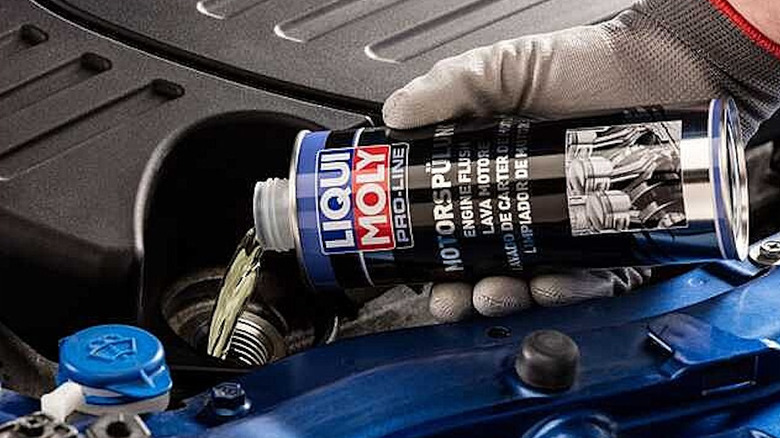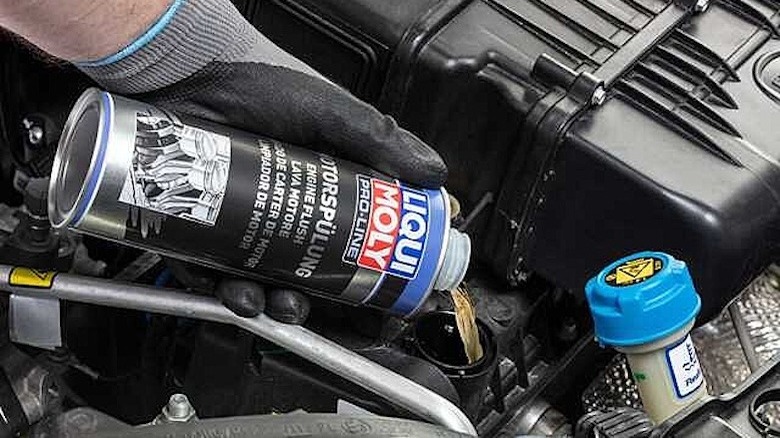What Does Liqui Moly Engine Flush Actually Do, And Is It Any Good?
We may receive a commission on purchases made from links.
While it can be a little bit of an inconvenience when the time comes, it is very important to regularly get oil changes for your car's engine. If you don't, you run the risk of reducing your engine's lifespan and hindering its performance, which will end up costing you down the line when your engine decides to turn on you. Oil changes, however, are not the only important step in maintaining what is underneath your car's hood. One way you can maximize what you get out of an oil change comes from something you do just prior to that: an engine flush.
As the name indicates, an engine flush is supposed to eliminate deposits and buildups of old oil or carbon inside your engine. So, when you do get your oil changed, that oil is actually able to be effective. There are a variety of different companies who manufacture engine flush formulas with one of them being Liqui Moly, which offers a swath of car care products like oils, additives, and greases. Its Pro-Line Engine Flush has been regarded as the best engine flush on the market from places like The Drive and Buyer's Guide. The question then becomes what makes it such a highly regarded engine flush and what — if any — negatives may get overlooked when judging its effectiveness.
A performance booster
Back in 2015, RSP Motorsports performed a test with Liqui Moly products utilizing a 1995 Porsche 993 Coupe. This included the company's Pro-Line Engine Flush along with its Leichtlauf High Tech 5W-40 oil (which is synthetic oil), Cera Tec anti-wear additive, and Motor Oil Saver. The company ran tests before and after this treatment with the Porsche to see what kind of increases it would get in terms of horsepower, torque, and fuel efficiency at both full and partial RPM loads. The results showed quite a number of improvements, most notably an increase of 13 hp and 16 lb-ft of torque when run at a full load.
While that's great, most people are not driving their vehicles with that kind of force, but there were still slight gains even at a partial 3,320 RPM load with 3.3 hp and 4.2 lb-ft of torque. RSP Motorsports found that the Porsche used a little over 7% less fuel at 3,600 RPM than prior to its engine treatment and over 8.8% less at 2,080 RPM. Clearly, these Liqui Moly products are effective, but with this methodology, it's a little tough to determine how much the Pro-Line Engine Flush contributed to these results.
What you can take from this testing is that using the company's engine flush is contributing somewhat to the improvement; if it's the oil and other additives creating the most benefits, then the Liqui Moly Pro-Line Engine Flush is creating the right path for those other liquids to be more effective. A 500 ml bottle retails for $31.99, but you can find it for $18 on Amazon.

